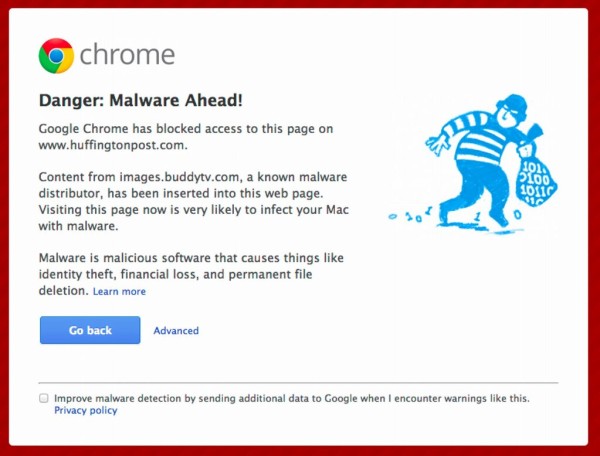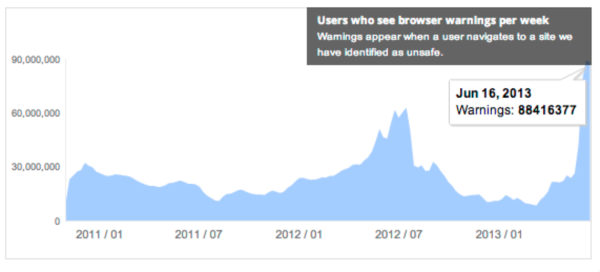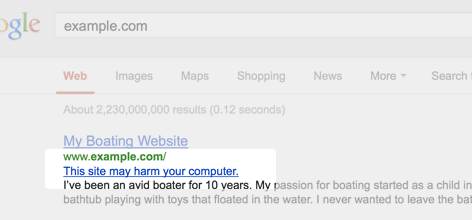Google Shows Nearly 100 Million Unsafe Browsing Warnings Per Week
The Google Safe Browsing system is designed to warn people from Google’s search results and when using popular browsers if they are about to enter a site deemed unsafe due to suspected malware or phishing attempts. Google’s now sharing figures on how often it warns: currently almost 100 million times per week, along with other […]
The Google Safe Browsing system is designed to warn people from Google’s search results and when using popular browsers if they are about to enter a site deemed unsafe due to suspected malware or phishing attempts. Google’s now sharing figures on how often it warns: currently almost 100 million times per week, along with other statistics.
The statistics have been added to the Google Transparency Report, where Google has shared information about when it is required to remove content or provide user data due to legal reasons. Now, Safe Browsing statistics are a new area of the report.
Unsafe Browsing
One type of warning Google shows appears within the browser, if someone tries to go to a particular web site deemed dangerous. Here’s an example:

On the overview page, a chart shows the number of unsafe browsing warnings that Google has shown to users of Google Chrome, Mozilla Firefox and Apple Safari on a weekly basis, going back to Oct. 31, 2010.The warnings have sharply risen since May, hitting a peak on June 16 of 88,416,377 per week:
 Warnings In Search
Warnings In Search
Google also shows warnings within its search results, to help people before they even click to a site. Here’s an example of that:

A related chart shows the warnings that have been shown within search results. Those warnings have massively dropped from in the past, though recently they’ve had a small rise. They currently total around 60 million per week:

Elsewhere in the area are states on unsafe sites that are detected each week, plus there’s a Malware Dashboard section that shows counties that are most hit (India and Malaysia seem to top the list at 14%) plus hosting services or companies that seem most infected (Webair tops the list here, at 43%).
If your site is hit with one of these warnings, Google recently launched a help center with more guidance.
Related Articles
Contributing authors are invited to create content for MarTech and are chosen for their expertise and contribution to the martech community. Our contributors work under the oversight of the editorial staff and contributions are checked for quality and relevance to our readers. MarTech is owned by Semrush. Contributor was not asked to make any direct or indirect mentions of Semrush. The opinions they express are their own.
Related stories
New on MarTech